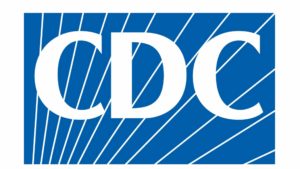CDC Health Advisory Ivermectin

Distributed via the CDC Health Alert Network
August 26, 2021, 11:40 AM ET
CDCHAN-00449
Rapid Increase in Ivermectin Prescriptions and Reports of Severe Illness Associated with Use of Products Containing Ivermectin to Prevent or Treat COVID-19
Summary
Ivermectin is a U.S. Food and Drug Administration (FDA)-approved prescription medication used to treat certain infections caused by internal and external parasites. When used as prescribed for approved indications, it is generally safe and well tolerated.
During the COVID-19 pandemic, ivermectin dispensing by retail pharmacies has increased, as has use of veterinary formulations available over the counter but not intended for human use. FDA has cautioned about the potential risks of use for prevention or treatment of COVID-19.
Ivermectin is not authorized or approved by FDA for prevention or treatment of COVID-19. The National Institutes of Health’s (NIH) COVID-19 Treatment Guidelines Panel has also determined that there are currently insufficient data to recommend ivermectin for treatment of COVID-19. ClinicalTrials.gov has listings of ongoing clinical trials that might provide more information about these hypothesized uses in the future.
Adverse effects associated with ivermectin misuse and overdose are increasing, as shown by a rise in calls to poison control centers reporting overdoses and more people experiencing adverse effects.
Background
The Centers for Disease Control and Prevention (CDC) confirmed with the American Association of Poison Control Centers (AAPCC) that human exposures and adverse effects associated with ivermectin reported to poison control centers have increased in 2021 compared to the pre-pandemic baseline. These reports include increased use of veterinary products not meant for human consumption.
Ivermectin is a medication that is approved by FDA in oral formulations to treat onchocerciasis (river blindness) and intestinal strongyloidiasis. Topical formulations are used to treat head lice and rosacea. Ivermectin is also used in veterinary applications to prevent or treat internal and external parasitic infections in animals. When used in appropriate doses for approved indications, ivermectin is generally well tolerated.
Clinical trials and observational studies to evaluate the use of ivermectin to prevent and treat COVID-19 in humans have yielded insufficient evidence for the NIH COVID-19 Treatment Guidelines Panel to recommend its use. Data from adequately sized, well-designed, and well-conducted clinical trials are needed to provide more specific, evidence-based guidance on the role of ivermectin in the treatment of COVID-19.
A recent study examining trends in ivermectin dispensing from outpatient retail pharmacies in the United States during the COVID-19 pandemic showed an increase from an average of 3,600 prescriptions per week at the pre-pandemic baseline (March 16, 2019–March 13, 2020) to a peak of 39,000 prescriptions in the week ending on January 8, 2021.1 Since early July 2021, outpatient ivermectin dispensing has again begun to rapidly increase, reaching more than 88,000 prescriptions in the week ending August 13, 2021. This represents a 24-fold increase from the pre-pandemic baseline. (Figure)
Figure: Estimated number of outpatient ivermectin prescriptions dispensed from retail pharmacies — United States, March 16, 2019–August 13, 2021*
*Data are from the IQVIA National Prescription Audit Weekly (NPA Weekly) database. NPA Weekly collects data from a sample of approximately 48,900 U.S. retail pharmacies, representing 92% of all retail prescription activity. Ivermectin dispensed by mail order and long-term care pharmacies, prescriptions by veterinarians, and non-oral formulations were not included.

In 2021, poison control centers across the U.S. received a three-fold increase in the number of calls for human exposures to ivermectin in January 2021 compared to the pre-pandemic baseline.
In July 2021, ivermectin calls have continued to sharply increase, to a five-fold increase from baseline. These reports are also associated with increased frequency of adverse effects and emergency department/hospital visits.
In some cases, people have ingested ivermectin-containing products purchased without a prescription, including topical formulations and veterinary products. Veterinary formulations intended for use in large animals such as horses, sheep, and cattle (e.g., “sheep drench,” injection formulations, and “pour-on” products for cattle) can be highly concentrated and result in overdoses when used by humans. Animal products may also contain inactive ingredients that have not been evaluated for use in humans. People who take inappropriately high doses of ivermectin above FDA-recommended dosing may experience toxic effects.
Clinical effects of ivermectin overdose include gastrointestinal symptoms such as nausea, vomiting, and diarrhea. Overdoses are associated with hypotension and neurologic effects such as decreased consciousness, confusion, hallucinations, seizures, coma, and death. Ivermectin may potentiate the effects of other drugs that cause central nervous system depression such as benzodiazepines and barbiturates.
Examples of recent significant adverse effects reported to U.S. poison control centers include the following:
- An adult drank an injectable ivermectin formulation intended for use in cattle in an attempt to prevent COVID-19 infection. This patient presented to a hospital with confusion, drowsiness, visual hallucinations, tachypnea, and tremors. The patient recovered after being hospitalized for nine days.
- An adult patient presented with altered mental status after taking ivermectin tablets of unknown strength purchased on the internet. The patient reportedly took five tablets a day for five days to treat COVID-19. The patient was disoriented and had difficulty answering questions and following commands. Symptoms improved with discontinuation of ivermectin after hospital admission.
Recommendations for Clinicians and Public Health Practitioners
- Be aware that ivermectin is not currently authorized or approved by FDA for treatment of COVID-19. NIH has also determined that there are currently insufficient data to recommend ivermectin for treatment of COVID-19.
- Educate patients about the risks of using ivermectin without a prescription, or ingesting ivermectin formulations that are meant for external use or ivermectin-containing products formulated for veterinary use.
- Advise patients to immediately seek medical treatment if they have taken any ivermectin or ivermectin-containing products and are experiencing symptoms. Signs and symptoms of ivermectin toxicity include gastrointestinal effects (nausea, vomiting, abdominal pain, and diarrhea), headache, blurred vision, dizziness, tachycardia, hypotension, visual hallucinations, altered mental status, confusion, loss of coordination and balance, central nervous system depression, and seizures. Ivermectin may increase sedative effects of other medications such as benzodiazepines and barbiturates. Call the poison control center hotline (1-800-222-1222) for medical management advice.
- Educate patients and the public to get vaccinated against COVID-19. COVID-19 vaccination is safe and the most effective means to prevent infection and protect against severe disease and death from SARS-CoV-2, the virus that causes COVID-19, including the Delta variant.
- Educate patients and the public to use COVID-19 prevention measures including wearing masks in indoor public places, physical distancing by staying at least six feet from other people who don’t live in the same household, avoiding crowds and poorly ventilated spaces, and frequent handwashing and use of hand sanitizer that contains at least 60 percent alcohol.
Recommendations for the Public
- Be aware that currently, ivermectin has not been proven as a way to prevent or treat COVID-19.
- Do not swallow ivermectin products that should be used on skin (e.g., lotions and creams) or are not meant for human use, such as veterinary ivermectin products.
- Seek immediate medical attention or call the poison control center hotline (1-800-222-1222) for advice if you have taken ivermectin or a product that contains ivermectin and are having symptoms. Signs and symptoms include gastrointestinal effects (nausea, vomiting, abdominal pain, and diarrhea), headache, blurred vision, dizziness, fast heart rate, and low blood pressure. Other severe nervous system effects have been reported, including tremors, seizures, hallucinations, confusion, loss of coordination and balance, decreased alertness, and coma.
- Get vaccinated against COVID-19. COVID-19 vaccination is approved by FDA and is the safest and most effective way to prevent getting sick and protect against severe disease and death from SARS-CoV-2, the virus that causes COVID-19, including the Delta variant.
- Protect yourself and others from getting sick with COVID-19. In addition to vaccination, wear masks in indoor public places, practice staying at least six feet from other people who don’t live in your household, avoid crowds and poorly ventilated spaces, and wash your hands often or use hand sanitizer that has at least 60 percent alcohol.
For More Information
NIH COVID-19 Treatment Ivermectin Guidelines
FDA Consumer Alert on Use of Ivermectin to Treat or Prevent COVID-19
FDA MedWatch Adverse Event Reporting program
CDC Coronavirus (COVID-19) website
U.S. Government Coronavirus (COVID-19) website
American Association of Poison Control Centers
Treatments Your Healthcare Provider Might Recommend if You Are Sick
References
1 Lind JN, Lovegrove MC, Geller AI, Uyeki TM, Datta SD, Budnitz DS. Increase in Outpatient Ivermectin Dispensing in the US During the COVID-19 Pandemic: A Cross-Sectional Analysis. J Gen Intern Med. 2021 Jun 18:1–3. doi: 10.1007/s11606-021-06948-6.
The Centers for Disease Control and Prevention (CDC) protects people’s health and safety by preventing and controlling diseases and injuries; enhances health decisions by providing credible information on critical health issues; and promotes healthy living through strong partnerships with local, national, and international organizations.












